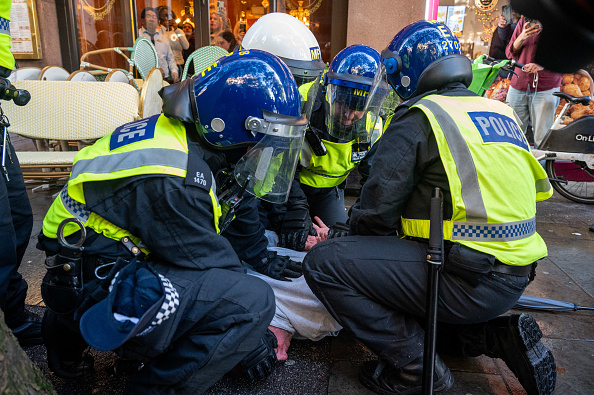Far-right extremism still represents a greater threat to the UK than “Islamist extremism,” according to the latest figures released by the Home Office’s Prevent programme.
Data for the year to March 2025 shows that for the fourth year in a row, “extreme right-wing” referrals to prevent have surpassed so-called “Islamist extremism. “
Authorities referred 8,778 individuals to the Prevent programme last year — the highest number in a decade and a 27% increase compared with the previous year.
The surge was largely driven by an increase in far-right referrals. Officials flagged 1,798 people (21%) for concerns related to “extreme right-wing” views, with 870 (10%) linked to “Islamist extremism.”
Referrals for far-right activity rose sharply from 1,314 the previous year, while those connected to ‘Islamist’ extremism declined from 913.
Individuals associated with extreme right-wing ideologies were also the most likely to have their cases adopted by Prevent’s multi-agency panels, which assess those considered to be at genuine risk of radicalisation.
The majority of referrals (56%) involved individuals with no clear ideological affiliation, although they were less likely to see their cases progress for formal intervention.
White referrals highest under Prevent programme
For the first time, the Home Office published ethnicity data for referrals. Where referrals had ethnicity specified, 65% were recorded as White, 19% as Asian, 8% as Black, and 8% as “other.”
A striking trend in the data shows that children aged 11 to 15 made up the largest age group referred, accounting for 36% of all cases.
Analysts indicate the alarming rise in the online radicalisation of young people, particularly within spaces promoting white nationalist and racist ideologies.
The report also found that just over a third of referrals involved individuals with a recorded mental health or neurodiversity condition. Autism spectrum disorder (ASD) was the most common, appearing in 14% of cases.
Counterterrorism experts have warned that the figures reflect a broader mainstreaming of far-right narratives in the UK by right-wing politicians and media, and with online hate networks increasingly targeting young people.
The rise in far-right extremism comes amid a surge in Islamophobic hate crimes across the country, with Muslim communities reporting higher levels of online abuse, street harassment and violent attacks.
















